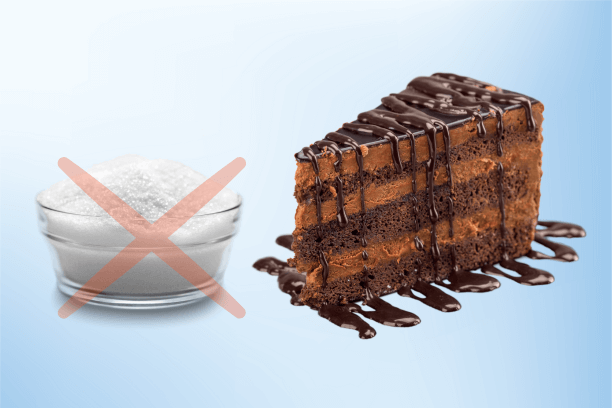

Sugar consumption is spread widely among us, and its excessive availability in the diet may harm our health.
Excessive sugar might raise your blood sugar levels and cause a random drop, making you feel weary and highly fatigued.
The long-term effects of consuming excessive sugar may include weight gain, diabetes complications, heart disease, or other physical problems.
However, you can regain control of your health by understanding the impact of sugar and trying easy measures to reduce excess sugar from your diet.
This article discusses some of the best ways to help detoxify sugar from your body. Read till the end to explore the benefits and importance of sugar cleansing for your body.
A sugar detox is an eating plan that might reduce or remove added sugars from your diet. You could break the cycle of sugar addiction by cutting out foods and drinks that are high in added sugars.
During a sugar detox, the focus is on eating unprocessed foods like fruits, vegetables, healthy fats, and complex carbohydrates.
It might ensure you still receive essential nutrients while avoiding the adverse impacts of consuming too much sugar.
Sugar detox may include unprocessed foods like fruits and complex carbohydrates that help manage weight, reduce inflammation, and improve digestion.

Gradually start your sugar detox by eliminating high-sugar foods from your daily diet. It could allow your body to adjust to the changes and reduce the chances of experiencing intense cravings or withdrawal symptoms. Starting slow may also increase your chances of long-term success in reducing sugar intake. You can sustainably alter your diet and lifestyle by gradually changing your sugar consumption.
Eating fiber, protein, and healthy fat is required to transition to a sugar-rich diet. These nutrients may help you feel satisfied after each meal, allowing you to meet your daily nutritional needs.
Fill your plate partly with non-starchy vegetables such as dark leafy greens, kale, spinach, broccoli, or Brussels sprouts.
The remaining quarters of your plate should include your protein choice, which can be a plant-based protein like beans or a well-sourced animal protein like pasture-raised eggs.
Include a complex carbohydrate choice in the final quarter, such as a half-cup serving of a gluten-free grain, starchy vegetable, or fruit.
Top your meal with 1-2 tablespoons of healthy fat, such as nuts, seeds, olives, and avocado.
Increasing water consumption helps move toxins and waste products out of the body more efficiently. It may support regular bowel movements and prevent constipation, especially when combined with more fiber-rich plant foods in the diet.
Beverages containing caffeine and alcohol could have dehydrating and diuretic effects on the body. During a sugar detox, it’s essential to be cautious while consuming these drinks as they tend to pull water from the body.
You may need to increase your water intake if you engage in physical activity or experience additional fluid loss through sweating.
Physical activity may increase heart rate and sweating, assisting in detoxification. Exercise could help move sugar into your skeletal muscles for storage, immediately increasing insulin sensitivity and supporting a sugar detox.
However, do not extend intense exercise, especially when your body adjusts to a reduced carbohydrate intake. Demanding too much energy can leave you feeling fatigued during a sugar detox.
Department of Health and Human Services exercise suggests getting at least 150 minutes of medium or seventy-five minutes of intense aerobic exercise weekly.
A 5-day sugar cleanse may help eliminate refined sugars from your diet, further reset your taste preferences, and stabilize blood sugar levels.
Consuming fiber, protein, and healthy fats could help satisfy your hunger and provide essential nutrients.
However, record your symptoms and how you feel throughout the 5-day Sugar Cleanse to understand the impact of the cleanse on your energy levels, mood, and digestion.
Practicing mindful eating could make you more present and aware of your body’s hunger alerts. You could savor each bite and give your brain time to evaluate feelings of fullness by slowing down your eating. Also, chewing each bite at least 20-30 times before swallowing may help in digestion and also improve satiety levels.
You may notice changes in your mood, such as feeling less irritable or experiencing improved mental clarity, as you reduce your sugar intake. It might show how sugar impacts your emotional health.
You must track your energy levels during a sugar detox. Many people start feeling less sluggish and more energized when they eliminate sugary or carb-heavy foods from their diet.
Discuss your observations with a health coach or nutritionist after monitoring the effects of sugar detox. It could help you interpret your noticed changes and develop a long-term nutrition plan that works for you.
Sugar cleansing may help improve energy levels, digestion, and overall health. Reducing refined carbs and sugars from processed foods and snacks allows you to naturally shift your intake towards natural, whole foods like fresh fruits and vegetables.
Whole plant-based foods, which are high in fiber, may help decrease glucose release into the bloodstream, leading to satiety and preventing overeating. It might improve digestion and avoid energy crashes, providing a steady energy level throughout the day.
Sugar cleansing could also help lower inflammation and reduce the intake of additives and preservatives that contribute to inflammation.
Sugar detox is an effective way to reduce inflammation. Consuming excessive sugar may lead to chronic inflammation, which could contribute to the growth of various health issues such as heart problems and diabetes complications. Inflammation could contribute to feelings of fatigue and low energy. You may experience improved energy and increased vitality through reduced inflammation through a sugar detox.
Sugar detox helps restore the natural balance of beneficial gut bacteria and promotes overall gut health. A diet high in unhealthy sugars might disrupt the natural equilibrium of good gut bacteria, leading to digestive problems. A sugar detox can restore a healthy gut microbiome, improving digestion. When added sugars are removed, the digestive system may focus on breaking down and absorbing nutrients from wholesome foods.
Cutting off added sugars may promote healthy weight management and achieving weight loss goals. Added sugars are often high in calories but low in nutritional value. A sugar detox reduces calorie intake and promotes fat burning, managing the buildup of fat caused by excessive sugar consumption. Removing added sugars from our diets reduces our calorie consumption and creates a calorie deficit, essential for weight loss.
Managing your sugar cravings might reduce your dependence on sugary foods and beverages. Sugar addiction could lead to intense cravings, making it challenging to resist the urge for sugary treats. However, a sugar detox can help break this cycle and reduce cravings.
Consuming excessive sugar causes a spike in blood sugar ranges, followed by a crash. It could lead to cravings for more sugar to regain that temporary energy boost.
Consuming excessive sugar may cause impairments such as brain fog, difficulty concentrating, and reduced cognitive performance. Cutting off sugar from your diet may prevent sudden spikes and crashes in blood sugar levels. Stable blood sugar levels could enhance mental clarity and focus throughout the day. Sugar detox may help improve gut health, which may help improve focus and make you better concentrate on work and surroundings.
Hidden sugar may creep into our daily diets, not just through drinks and desserts. Even some wholesome foods may contain hidden sugars.
Thus, it is important to read food labels to make healthier choices. Look for ingredients like cane sugar, high fructose corn syrup, sucrose, and dextrose, which are all forms of sugar that can contribute to excessive sugar consumption.
Cutting sugar from your diet might result in weight loss as it could eliminate empty calories and reduce overall calorie intake.
When you consume added sugars, you consume extra calories that provide little nutritional value. Removing these empty calories from your diet creates a calorie deficit, which may support your weight loss efforts.
However, the primary weight loss during a sugar detox is typically due to water weight and glycogen depletion rather than actual fat loss.
Your body stores sugar as glycogen in your muscles and liver when you consume it. As you cut out sugar, your body begins to use up these glycogen stores, releasing water and leading to a temporary weight drop.
Cutting your sugar intake may help you achieve moderate weight loss when you pair it with a high-fiber and nutrient-dense diet.
Cutting out sugar from your diet may cause a temporary change in energy levels, making you feel sluggish and tired.
However, it’s essential to remember that the intensity of these side effects can vary from person to person.
Must See: How To Detox Your Body To Lose Weight? [7 Ways to Rejuvenate]
Thus, once the detox is completed, stay mindful of your sugar consumption and make conscious choices to limit your consumption.
Common sugar substitutes during a sugar detox include stevia, monk fruit extract, and xylitol, which are much lower in calories than refined sugar. When used in moderation, these sugar alternatives could provide sweetness without causing any harm to health.
To overcome sugar cravings during a detox, focus on consuming whole, unprocessed foods to stabilize blood sugar levels, which could help curb your cravings. You can also consume natural fruits to satisfy your sugar cravings.
During a sugar detox, avoid foods and drinks that contain added sugars, such as bakery products, packed juices, and foods with hidden sugars.
A sugar detox can potentially improve skin health by reducing inflammation and shedding some weight. Cutting out refined sugars can support a healthy gut microbiome, which may promote clearer and healthier skin.
It is unnecessary to eliminate natural sugars in fruits during a sugar detox. However, limiting your sugar intake and focusing on consuming whole, unprocessed foods will provide you optimal health.
A sugar detox could be appropriate to reset our bodies and improve overall health. If you feel that your sugar consumption is getting beyond control and impacting your health, you must follow a sugar detox. It may help you manage your excessive sugar cravings and retain a healthy relationship with food.
A sugar detox could help kickstart your weight loss journey. However, you must maintain a balanced diet and exercise regularly for healthy weight management in the long run. Simply relying on a sugar detox alone is not a sustainable or healthy strategy for losing weight.
Thus, consult with a medical expert or a dietician before undergoing sugar detox, as a sudden reduction in sugar level might cause fatigue or other health concerns. Seeking medical advice will help you manage your sugar intake and cravings effortlessly.
Tyler Read earned an undergraduate academic degree from Sonoma State University, California and is a certified personal trainer (CPT) with NASM (National Academy of Sports Medicine). With over 16 years of experience, Tyler has trained clients both online and in-person.
He is passionate about helping others turn their love for fitness into a career. Tyler has worked with many local and commercial gyms before establishing his successful private personal training business, which he continues to operate.
